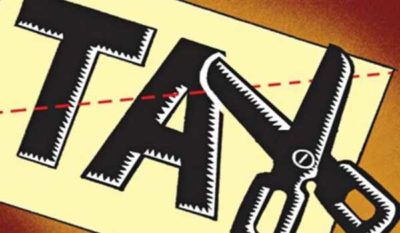Published in The Daily Star on Wednesday, 27 June 2018

In Satyajit Ray’s 1980 dystopian film Hirok Rajar Deshe (Kingdom of Diamonds), a diamond miner accused of tax evasion is brought to the court of the king. The miner pleads for the king’s mercy, as he confesses that he is too poor to pay taxes. In reply, the king tells him that keeping due taxes unpaid is not a good thing at all (“baki rakha khajna, mote bhalo kaaj na”). The miner tries to argue his case by saying that he would have to go hungry if he had to pay taxes. This time the king retorts by saying that taxes should be paid even at the cost of starvation (“bhor pet nao khai, raj kor dewa chai”). Subsequently, the miner is found guilty of his crimes, and sent to prison.
This allegory illustrates the two possible stances that a government may take in response to tax evasion. The first stance, which is benevolent, is summarised by the king’s first statement which says that “keeping due taxes unpaid is not a good thing at all.” The second stance, however, is rather diabolical, and is captured in the king’s second statement which says that “taxes should be paid even at the cost of starvation.” A government which adopts the first stance strengthens the moral fabric of society. On the other hand, a government which chooses the second stance tears society apart with divisive injustice.
Tax evasion as a phenomenon has existed as long as taxes themselves. It is so ubiquitous that it can be found in every country and at every juncture of human history, carried out both by individuals and by corporations. Honest and hardworking ordinary people who religiously pay their taxes find the notion of tax evasion to be highly unpalatable, if not deeply disturbing. The evasion of taxes violates the principle of horizontal equity, since people earning the same income may end up paying different amounts of taxes, triggering wealth and income inequalities. Moreover, tax evasion narrows down the tax base which may induce a rise in tax rates that lead to a greater tax burden on those who pay tax. This creates a vicious cycle, since high tax rates may inspire a new round of tax evasions.
The genesis of conventional theories of tax evasion is in the acknowledgement that tax evasion is a crime. Once this consensus is established, tax evasion can be investigated in the same fashion as any other criminal activity. From an economic perspective, the number of offences committed by individuals is negatively related to the probability of conviction and punishment per offence. An offence is committed by an individual if the expected utility of the offence is greater than the expected utility from other activities. Therefore, the underlying reason behind crime is not a difference in motivation of different individuals, but rather a difference in expected costs and benefits of different individuals.
In line with this reasoning, a taxpayer’s decision to pay taxes is influenced by the corresponding costs and benefits of tax evasion. The taxpayer is assumed to be a rational individual who has full information regarding the costs and benefits of tax evasion and ultimately makes choices based on the objective of maximising utility. Thus tax evasion occurs when the expected benefit from tax evasion is greater than the expected penalty from tax evasion. This analysis implies that any measures designed to tackle tax evasion should be constructed in such a manner that they raise the expected penalty from tax evasion above and beyond the expected benefit from tax evasion. In order to increase the expected penalty, either the probability of detecting tax evasion or the post-detection penalty for tax evasion must be increased.
Alternative theories of tax evasion have also been explored and considered at different times. For example, Plato believed that people may evade taxes simply because they are too fond of their money. He also argued that tax evasion may be viewed as unfair since it involves free-riding of public goods. The “just person” may pay more tax than the “unjust person” and yet still get the same, or even less, benefits from the state. This may motivate the “just person” to evade taxes as well. Generally, tax evasion could sometimes be indicative that people feel that taxes are too high compared to the benefits they receive, or that they feel that their tax money is not being spent wisely by the government.
Regardless of the underlying reasons, tax evasion is ultimately an outright robbery of government revenue. It is a crime which deprives a nation of the resources required for its development. As a result, it creates a treasury bereft of funds which, according to ancient Indian philosopher Kautilya, forces the government to “eat into the very vitality of the citizens.” Bangladesh has been languishing behind in terms of its tax-GDP ratio, which has historically been lower than that of its South Asian counterparts. This is disquieting since tax-GDP ratio is an indicator of the extent of tax evasion within an economy. In order for Bangladesh to achieve the Sustainable Development Goals by 2030, domestic revenue collection through direct taxation must be mobilised effectively. Therefore, tax evaders should be brought to justice immediately, and the crime of tax evasion must be dealt with an iron fist. Otherwise, surging inequality will inevitably create division and discord in society.
Syed Yusuf Saadat is a research associate at the Centre for Policy Dialogue (CPD).

